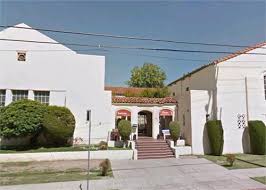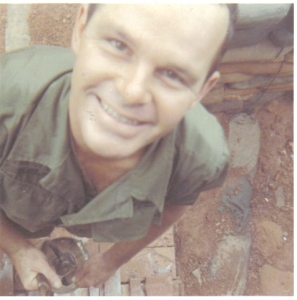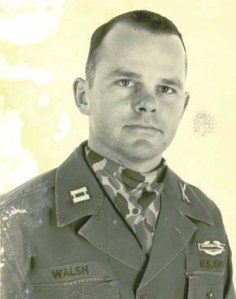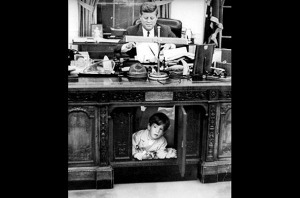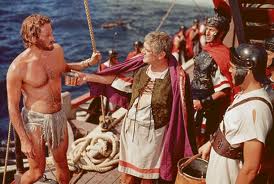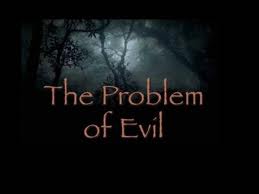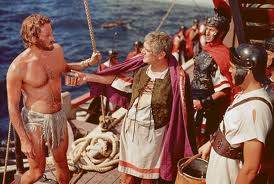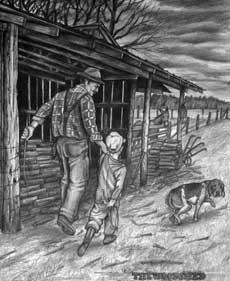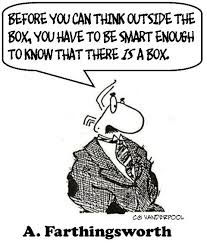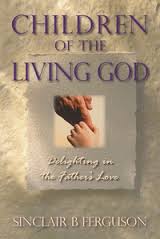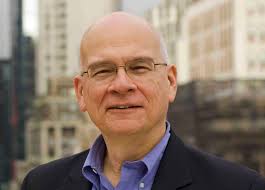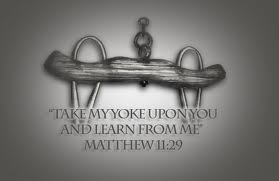Journey Post 39: The donkey understanding of Christianity and the Christian life, part 1: The parable of the 2×4
Preliminaries
I was once told this story of a farmer and his donkey: One day a farmer needed to go to town. So he hitched his donkey to the wagon. Then the farmer and his friend climbed up into the seat. The farmer flicked the reins, clicked his tongue, and said, “Giddup!” But the donkey didn’t move. He just sat down on his haunches. The farmer flicked again, said “Giddup!” again, but still, no movement. The farmer calmly climbed down, went to the back of the wagon, picked up a 2×4, and walked to the front: THWACK! upside the head went the 2×4. The farmer calmly climbed back into the wagon and set down the 2×4. The farmer flicked the reins and the donkey started on down the road. “What’d you do that for?” said his friend. Came the reply, “Well, first you have to get his attention.”
“Donkey” is the family name given to me by the son of a Manjako chief in 1981 when we moved into his village in Senegal and began to learn his language. “If you’re going to live with us,” he said, “you must have a Manjako name.” The Manjako spelling of the name is different; nevertheless, it sounds nearly identical to our English ears. I never learned the origin of the family name, but its meaning is not related to our English word. And, for the past thirty-five years, “Donkey” has served as a sometime humorous reminder from God of how stubborn I am and slow to learn wisdom and other important stuff. And the 2×4? For now, let’s just say it represents measures taken by God to get my attention….
How I came to write this series of essays:
Our word “preliminary” is from French, or maybe from Latin. Latin: prae, ‘before’ + limen, ‘threshold.’ Right this moment, we’re standing on a threshold, peering into a room where a tapestry hangs—the tapestry of my life. The tapestry is incomplete, a design in progress, the patient, loving work of my adoptive father. I’ve been a Christian since 1971, but I’ve had little appreciation for the nature of the love with which he has crafted that tapestry. Most of my life has been lived on the backside among the confusing tangles of thread, zigging and zagging hither and thither.
Occasionally, my father showed me a glimpse of the front side. Sometimes it took one of the 2x4s to get my attention long enough to look—and once in a while to actually see—what was going on. There is something of great beauty happening, but I can’t tell you what it is because I don’t yet know the rest of the story.
Above: an unfinished tapestry….
I have shared parts of this story before. So please forgive me if some of it is repetitious to you: it won’t be to all my readers. The story is critical to understanding why I’m compelled to write what appears in the next five posts.
For much of my Christian life, my view of God was distorted, one which saw him primarily as judge, the father figure who was never satisfied with my best efforts to please him. I did not realize that’s what I really thought, so I couldn’t have told you. This view is actually quite common, even among Christians and ministers. It may not fit what we think we believe, but it’s often behind how we live. I call it our “functional theology.”
I would have not realized that’s how I actually saw God had I not seen the same view full blown in a young friend, had I not seen it destroying his marriage, his ministry, his life. It was a dramatic attention-getter (another 2×4) which would lead to my eventually knowing God’s father heart and knowing, too, what I meant to him. It didn’t change everything all at once, but it brought a revolution in my life–and the life of Michelle–that is still unfolding….
Several things were coming together about the same period of time (2007 and after) that brought this revolution. Michelle and I were involved in a church plant in Hollywood. There, I was brought face to face with how loads and loads of people didn’t like Christians. I’d been aware of it before, of course. But when I heard how many considered us hypocrites, self-righteous, judgmental, etc., etc., I figured they were making an excuse for walking away from God. I’ve had to reexamine that assumption.
Above: Hope International Bible Fellowship in Hollywood where we first met to plant a church
Actually, I’ve found that there’s still a search going on across our land. People are trying to understand spirituality, looking for some larger purpose. Most still believe in God; they’re just not sure that those who claim to represent him know what they’re talking about. I’ve quoted Gandhi and even many Christian leaders who recognize that the greatest hindrance to becoming Christian has been other Christians.
But, to paraphrase the Sara Lee jingle, “nobody doesn’t like Jesus.” That isn’t strictly true, of course. Most people seem to see Jesus as a great moral teacher, though they’re puzzled over the miracles and the deity thing. Too many have come to see Christians as people they don’t want to be around. A friend told me once that Christians are the only ones who shoot their wounded. I have known that truth for myself. And most people around us are wounded in some way.
About the same time as the church plant, I was coming face to face with the fact that my so-called Christian life wasn’t working so very well. I’d been a missionary, a church leader, a Sunday school teacher, a counselor. But I was questioning my faith and pondering the fact that God kept bringing me to the edge of failure in ministry, work, and marriage.
If you’d asked me, as a new Christian, what I expected my life to be like in thirty years, I would have answered: “An abundant, free life, filled with quiet joy as we walk with God and await our call home (i.e., to heaven).” It hasn’t quite unfolded like that.
We’ve had a tumultuous marriage (mostly behind the scenes). My dreams of being a great missionary and Bible translator foundered on the shoals of my self-protective life, and I resented that Michelle always seemed to know anything better than I. Our kids were seeing the hypocrisy, legalism, and even immorality at our mission school base. Our oldest son was in near-open rebellion at this. I struggled with my own suppressed rage over fear of exposure as a bad father, yet sensing a growing admiration for our son whose honesty and courage could no longer abide leaders who expected submission from kids while ignoring adult dirty laundry hanging in plain sight.
We left Africa in 1989 with me thinking God had pulled the rug out from under me. Sacrilegious? Yes. But it reflected the reality of my still unrecognized view that God was distant, uninterested in me, uncaring and never-satisfied. I couldn’t see just how insidious was my thinking: I figured the problem was me, not God. Only while counseling my young friend years later could I see how his distorted view of an unsatisfied and ever-demanding God was leading him in the paths of destruction. He knew exactly how he saw God and could articulate it. In his articulation I saw my own functional understanding, like looking in a mirror. It scared me. Had I missed something?
It was in shear desperation that I went home and cried out, “What do you really think of me, Lord? I have to know!” I just couldn’t play church any longer. I’d felt the same way after my appointment with a mortar round in Vietnam. But God really did hear my cry, and I now realized how he’d waited on me to pay attention so I could see he’d been there all the time.
If ever there was a “word from God,” I heard it that day. The word was: “delight.” His whisper told me to look at Proverbs 3:12, a verse I generally understood as, “Hey, pay attention to the 2×4, stupid!” Instead, as I looked, my eyes traveled to the qualifying phrase after the statement that the Lord disciplines those he loves. It said: “as a father the son in whom he delights.” Wait … What? Delights? You delight in me, Lord?
I had never put that word in close proximity with God—or my dad, for that matter. Even though I felt I didn’t ever matter to my own dad, I understood what a father was supposed to be like. To hear that word “delight” made me feel like I’d died and gone to heaven. My performance treadmill life had been about seeking to please God and everybody. But now, the finger of God pushed the stop button and told me it was time to get off. To know a father’s delight removes the fear of the unsatisfied eye. He had known all the worst about me and delighted in me, his child whom he was eager to adopt.
Eager? Adopt? We’ll look at that in due course. You’ll just have to wait….
There is something about knowing you are truly deeply loved that is inexplicable. It doesn’t yield to convenient analysis, and you can’t help but respond to it. We love when we’re first loved. Love is not something we do because we’re supposed to. We learn it by the experience of being loved in relationship. I’ve been learning to love because I now know I am loved.
This is what actually compels me to write these essays. I wrote about love last post, about my captain in Vietnam and how he had given his life so that we might live that day. His life and death was an illustration of that quality of genuine, self-giving love that is the essence of Christianity. I didn’t get the point at the time—back then, I only knew I couldn’t do what he had done—but when I really saw the love of God, I connected the dots….
Christians talk about love all the time and non-Christians don’t put much stock in it. They look at us and say, “What you do speaks so loudly, I can’t hear what you say.” That’s why I want to focus on Jesus, what he taught, what he had to say about the Father, and how he put God on display by his life .
My plan for this series of essays is fairly straightforward, and much of it is already in draft form. I may change some things, as per usual, but here is what I have in mind:
Part 2: My personal understanding of Jesus, what Christianity is about, and what it means to live the Christian life. This will give a quick overview and let Christian readers know I’m no raging heretic.
Part 3: What Jesus actually taught: A summary look at the sermon on the mount
Part 4: What Jesus actually taught: Looking at those troublesome parables
Part 5: What Jesus actually taught: A look at other teachings, mostly from the Gospel of John
Part 6: In Conclusion: Additional notes and what it means to live as a disciple (apprentice) to Jesus
I think you’ll find that my beliefs are pretty standard Christian fare (orthodox with a small “o,” if you will). I don’t like certain stereotypical terms used to classify Christians (“fundamentalist” and “evangelical”), and I don’t like to be pigeonholed. I call myself a Christian, a believer, a follower of Jesus, a disciple. Even “disciple” conveys weird things to some people, so I like the word “apprentice,” which still carries the same basic idea as what it meant to be a disciple in Jesus’s day. More on that later.
In speaking about Christianity, I stress the word “relationship,” because what the disciples learned from Jesus was about how to live life in relationship to God and other people. Being a Christian is not primarily about going to church, nor becoming a “better” person–though hopefully, that’s a result. It’s not about going to heaven when you die, though that’s part of it. Jesus said (John 17:3) that eternal life is knowing God. The great privilege of the Christian is to know God as Father.
I hope you will find what I have to say to be informative, perhaps surprisingly enjoyable, and be challenged to really think.



